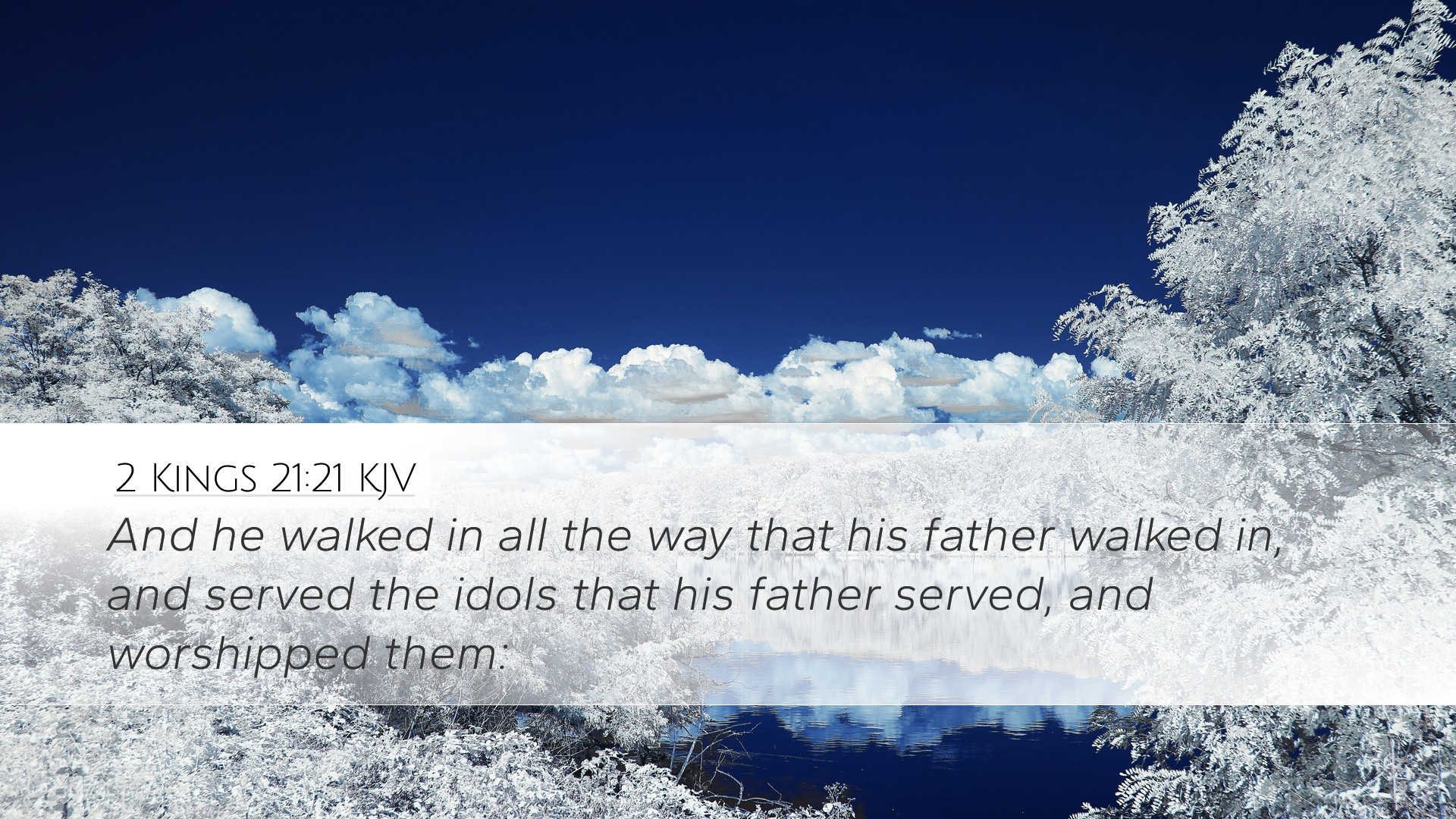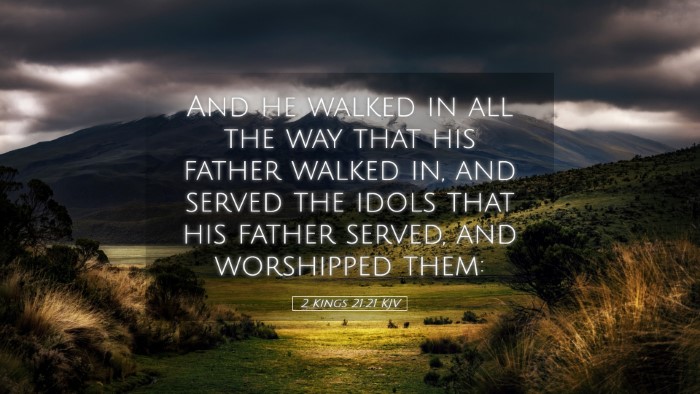Commentary on 2 Kings 21:21
Verse Context: 2 Kings 21:21 refers to the actions of King Manasseh of Judah, specifically noting how he walked in the ways of his father, Amon, and how he served idols and worshipped false gods. This passage serves to highlight the spiritual decline of Judah during his reign and sets a tone of warning against idolatry and rebellion against God.
Insights from Commentaries
Matthew Henry’s Commentary
Matthew Henry notes that the phrase "he walked in all the ways that his father walked" indicates a deep commitment to the sinful practices established by Amon. This reflects not only a personal character flaw but a broader societal issue in Judah at the time.
Henry emphasizes that Manasseh's actions were in direct contrast to the religious reforms led by his predecessor, Hezekiah. His return to idolatry serves as a stark reminder of how easily a nation can revert to sin and the dire consequences that follow, both spiritually and politically.
Albert Barnes’ Notes
Barnes expands on the concept of succession in leadership, observing that the religious state of a nation often mirrors its kings. Manasseh's reign represents a step backwards for Judah, showcasing how he reinstated prohibited practices, including child sacrifice and the worship of Baal.
He remarks on the implications of such behavior, suggesting that Manasseh's deliberate choices brought about divine wrath. The mention of "serving idols" is a critical element, as Barnes asserts it highlights the spiritual blindness that afflicted Judah, thereby inviting God’s judgment upon the nation.
Adam Clarke’s Commentary
Clarke provides a historical perspective, noting that Manasseh was one of the most evil kings in Judah's history. His actions, according to Clarke, included reversing the reforms of Hezekiah, thereby reopening the doors to idolatry and pagan practices that had been previously condemned.
Clarke also touches on the psychological aspect of Manasseh's decision-making, suggesting that the allure of surrounding pagan cultures likely influenced him, indicating a fundamental lesson about the dangers of conformity to worldly practices.
Theological Reflections
The study of 2 Kings 21:21 provides rich theological insight. The following themes emerge:
- Idolatry and its Consequences: The verse serves as a reminder of the destructive nature of idolatry, as Manasseh's actions lead to national decline.
- The Nature of Leadership: It underscores the role of leadership in shaping the spiritual and moral compass of a community.
- Divine Judgment: A crucial theological takeaway is the certainty of divine judgment as a response to persistent unrepentant sin.
Practical Applications
For pastors, students, and theologians, the passage holds valuable lessons:
- Leading by Example: Leaders must be vigilant in their spiritual lives, as their choices can significantly impact those they oversee.
- Resistance Against Cultural Pressures: The danger of succumbing to cultural norms that oppose biblical values is ever-present and requires steadfastness in faith.
- Call to Repentance: The importance of repentance is highlighted; God offers restoration even in the wake of grave sin when there is genuine contrition.
Conclusion
In summary, 2 Kings 21:21 serves as a poignant reminder of the perils associated with turning away from God and the necessity for true leaders to guide their people toward righteousness. It speaks to the heart of biblical faithfulness, urging believers today to heed the lessons from Judah's history as they navigate their own spiritual journeys.


